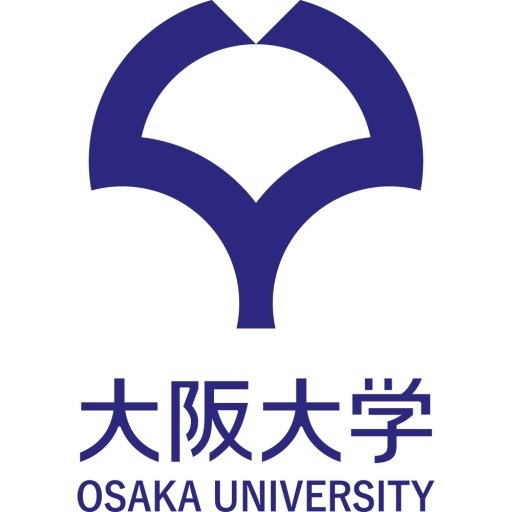Photos of university / #university_of_tsukuba
The Physics undergraduate program at the University of Tsukuba offers a comprehensive and rigorous education in the fundamental principles of physics, equipping students with the knowledge and skills necessary to understand the natural phenomena that govern our universe. The curriculum is designed to provide a balanced mix of theoretical fundamentals, experimental techniques, and modern applications, fostering both analytical thinking and practical problem-solving abilities. Throughout the program, students have the opportunity to study a wide range of subjects including classical mechanics, electromagnetism, thermodynamics, quantum mechanics, and statistical physics, ensuring a well-rounded scientific foundation.
In addition to core coursework, students engage in laboratory experiments and research projects that develop critical skills in data analysis, instrumentation, and scientific communication. The program emphasizes the importance of mathematical methods in physics, providing students with strong computational skills to model and analyze complex systems. The university encourages interdisciplinary learning, allowing students to explore areas such as condensed matter physics, astrophysics, and applied physics, aligning their studies with emerging scientific fields and technological advancements.
The faculty members at the University of Tsukuba are experienced researchers committed to guiding students through their academic journey and fostering innovative thinking. Students are also encouraged to participate in seminars, workshops, and conferences, facilitating engagement with the wider scientific community. The program aims to cultivate not only academic competence but also traits such as critical thinking, creativity, and teamwork, preparing graduates for careers in academia, industry, and research institutions.
With state-of-the-art laboratories and research facilities, the physics program provides an excellent environment for hands-on learning and experimentation. The university’s strong collaboration with industry and research organizations offers practical internship opportunities and exposure to real-world scientific challenges. Graduates of this program are well-prepared to contribute to scientific research, technological development, or pursue advanced degrees in physics or related disciplines. The Physics undergraduate program at the University of Tsukuba is committed to producing highly skilled, innovative, and globally-minded scientists ready to make meaningful contributions to our understanding of the physical universe.
- Course requirements : “Special Research”. total 18 credits.
- Doctoral (PhD) thesis : The student should submit a doctoral thesis and take an oral examination. In normal cases, it will happen during or at the end of the third year in the doctoral program. However, an exceptional student can submit his/her thesis a year earlier.
- Application form
- A copy of the picture pgfe of your passport
- Examination fee
- Graduation certificate
- Degree certificate
- Transcripts
- Research plan
- Financial plan
- TOEFL/TOEIC/IELTS Score
- Application checklist
The University of Tsukuba offers various financing options for students pursuing the Physics undergraduate program, designed to support and assist students throughout their academic journey. These options include scholarships, financial aid, tuition fee exemptions, and student loans. The university provides several scholarship programs, including prestigious entrance scholarships for outstanding students and ongoing merit-based scholarships for those demonstrating exceptional academic achievement and extracurricular activities. International students are also eligible for specific scholarships aimed at promoting diversity and internationalization within the campus community. Application procedures and eligibility criteria for these scholarships vary, but are generally competitive, requiring a strong academic record and, in some cases, supporting documents such as recommendation letters or personal statements.
In addition to scholarships, the University of Tsukuba offers financial aid programs that help students who demonstrate financial need. These can include tuition fee reductions, partial exemptions, and emergency loans to assist students facing unforeseen financial difficulties. The university also collaborates with government agencies and private organizations to provide additional funding opportunities, including government-sponsored student loans such as the Japan Student Services Organization (JASSO) loans, which offer low-interest rates and flexible repayment terms. International students may also be eligible to apply for these loans, depending on their visa status and financial circumstances.
Students are encouraged to explore multiple funding avenues early in their studies to ensure comprehensive financial support. The university’s financial aid office provides guidance and assistance in applying for scholarships and loans, offering tailored advice based on individual circumstances. Furthermore, the university promotes a range of part-time employment opportunities both on and off campus to supplement students’ income. These jobs are often related to research assistantships or teaching support roles within the university, providing valuable experience alongside financial benefits.
In summary, the University of Tsukuba's Physics program's financing studies focus on providing a robust support system that encompasses scholarships, loans, and part-time work opportunities. These financial assistance measures are designed to reduce economic barriers for qualified students, allowing them to focus on their academic pursuits and achieve their full potential in the field of physics. The university encourages prospective and current students to actively seek information and assistance to maximize their financial support options.
The Physics undergraduate program at the University of Tsukuba provides students with a comprehensive foundation in the fundamental principles of physics, encompassing classical mechanics, electromagnetism, thermodynamics, quantum mechanics, and wave phenomena. The curriculum is designed to cultivate critical thinking, problem-solving skills, and a deep understanding of natural laws. Students have the opportunity to engage in experimental and theoretical coursework, fostering hands-on experience through laboratory work and research projects. The university emphasizes integrating modern technology and computational techniques into physics education, preparing graduates for diverse careers in research, industry, and academia. Throughout the program, students can participate in seminars, workshops, and internships, enhancing their practical skills and scientific communication abilities. The program also encourages international collaboration and offers opportunities for studying abroad, enabling students to gain global perspectives in scientific research. Faculty members are actively involved in cutting-edge research in areas such as condensed matter physics, astrophysics, particle physics, and materials science, providing mentorship and opportunities for undergraduate research involvement. By the completion of this program, students are expected to possess a solid understanding of physical theories, analytical skills, and the ability to apply physics principles to solve complex problems. The university aims to produce well-rounded physicists equipped for further postgraduate study or professional careers in science and technology fields.






